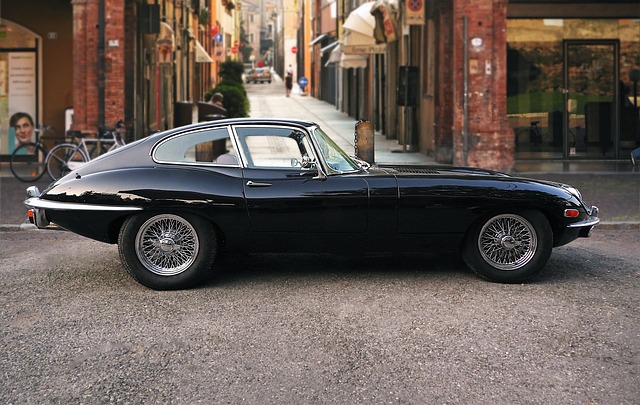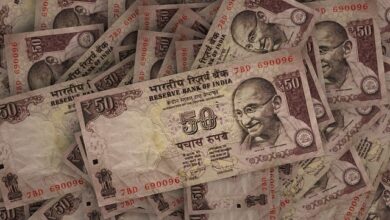Cost of Owning a Car in France: Insurance and Maintenance

Owning a car in France can be a convenient way to explore the country’s picturesque landscapes, charming villages, and bustling cities. However, it comes with significant costs that go beyond the initial purchase price. From insurance premiums to routine maintenance, fuel expenses, and taxes, understanding the full cost of car ownership is essential for budgeting and financial planning. In this guide, we’ll break down the key expenses associated with owning a car in France, focusing on insurance and maintenance .
1. Car Insurance Costs
Car insurance is mandatory in France, and the cost varies depending on several factors, including your age, driving experience, location, vehicle type, and coverage level. Here’s an overview:
A. Types of Car Insurance
- Third-Party Liability Insurance (Responsabilité Civile):
This is the minimum legal requirement in France. It covers damages or injuries you cause to others but does not cover your own vehicle.- Average Cost: €300–€600 per year for basic coverage.
- Comprehensive Insurance (Tous Risques):
This provides full coverage, including damage to your own vehicle, theft, fire, and natural disasters. It’s ideal for newer or more expensive cars.- Average Cost: €800–€1,500+ per year, depending on the car and driver profile.
- Intermediate Coverage (Tiers Étendu):
A middle-ground option that covers third-party liability plus additional protections like theft, fire, and vandalism.- Average Cost: €500–€1,000 per year.
B. Factors Affecting Insurance Costs
- Age and Driving Experience:
Young drivers (under 25) and those with fewer than three years of driving experience typically face higher premiums due to their perceived risk. - Location:
Urban areas like Paris or Lyon have higher insurance rates because of increased traffic congestion, accident risks, and theft rates compared to rural regions. - Vehicle Type:
The make, model, engine size, and value of your car influence insurance costs. Luxury or high-performance vehicles are more expensive to insure. - Driving Record:
Drivers with clean records enjoy lower premiums, while those with accidents or traffic violations will see higher rates.
C. Additional Insurance Options
- Breakdown Assistance (Assistance Routière):
Covers towing, repairs, and emergency services if your car breaks down. Many insurers include this as part of comprehensive policies.- Cost: €50–€150 annually.
- Legal Protection (Protection Juridique):
Helps cover legal fees in case of disputes related to your vehicle.- Cost: €20–€50 annually.
2. Maintenance Costs
Regular maintenance is crucial to keep your car running smoothly and avoid costly repairs. Maintenance costs depend on the vehicle’s age, mileage, and condition. Below are the main components:
A. Routine Servicing
- Oil Changes:
Recommended every 10,000–15,000 kilometers.- Cost: €50–€150 per service.
- Tire Replacement:
Tires need replacement every 40,000–50,000 kilometers or when worn out. Winter tires are also required in some regions during colder months.- Cost: €50–€150 per tire.
- Brake Pads and Discs:
Typically replaced every 30,000–60,000 kilometers.- Cost: €100–€300 for pads; €200–€500 for discs.
- Timing Belt Replacement:
Necessary every 80,000–120,000 kilometers, depending on the manufacturer.- Cost: €300–€800.
B. Annual Technical Inspection (Contrôle Technique)
All cars over four years old must undergo a mandatory safety inspection every two years. This ensures the vehicle meets French roadworthiness standards.
- Cost: €70–€100.
C. Repairs
Unexpected repairs can significantly impact your budget. Common issues include:
- Battery Replacement: €100–€300.
- Exhaust System Repair: €200–€600.
- Suspension Work: €300–€1,000.
D. Fuel Costs
Fuel prices in France fluctuate but are generally higher than in many other countries due to taxes. As of 2023:
- Diesel: ~€1.80–€2.00 per liter.
- Unleaded Gasoline (SP95): ~€1.90–€2.10 per liter.
Electric vehicles (EVs) offer savings on fuel but require charging infrastructure access. Public charging stations charge approximately €0.30–€0.50 per kWh.
3. Taxes and Fees
Several taxes and fees contribute to the overall cost of car ownership in France:
A. Vehicle Registration Tax (Taxe sur les Certificats d’Immatriculation)
When purchasing a new or used car, you must pay a registration fee based on CO₂ emissions:
- Low-emission vehicles (<20g/km): €0–€50.
- Mid-range emissions (21–120g/km): €50–€500.
- High-emission vehicles (>120g/km): Up to €1,000+.
B. Ownership Tax (Taxe sur les Véhicules de Société)
For company cars, employees may incur a taxable benefit based on the vehicle’s CO₂ emissions and list price.
C. Environmental Taxes
France imposes additional charges on polluting vehicles:
- Malus Écologique: A penalty for buying high-emission cars, ranging from €50 to €40,000.
- Bonus-Malus System: Offers rebates for low-emission vehicles (up to €7,000 for EVs).
D. Road Tolls
France has an extensive network of toll roads (péages ), which can add up during long trips. Toll costs depend on distance and vehicle type:
- Example: Paris to Nice (~930 km) costs ~€70–€90 for a standard car.
4. Other Considerations
- Parking Fees:
In major cities like Paris, parking can be expensive. On-street parking rates range from €2–€6 per hour, while monthly garage rentals cost €100–€300. - Depreciation:
Cars lose value over time, especially after the first few years. Budget for resale or trade-in values when upgrading. - Insurance Deductibles:
Most policies include deductibles (franchises ) ranging from €150–€600, which you must pay in case of claims.
5. Tips to Reduce Costs
- Choose a Fuel-Efficient or Electric Vehicle: Lower fuel consumption and tax incentives can offset higher upfront costs.
- Shop Around for Insurance: Compare quotes from multiple providers to find the best deal.
- Perform Regular Maintenance: Preventive care reduces the likelihood of major repairs.
- Use Public Transport When Possible: Minimize wear and tear by relying on trains or buses for longer journeys.
- Consider Carpooling: Share commuting costs with others to save money.



